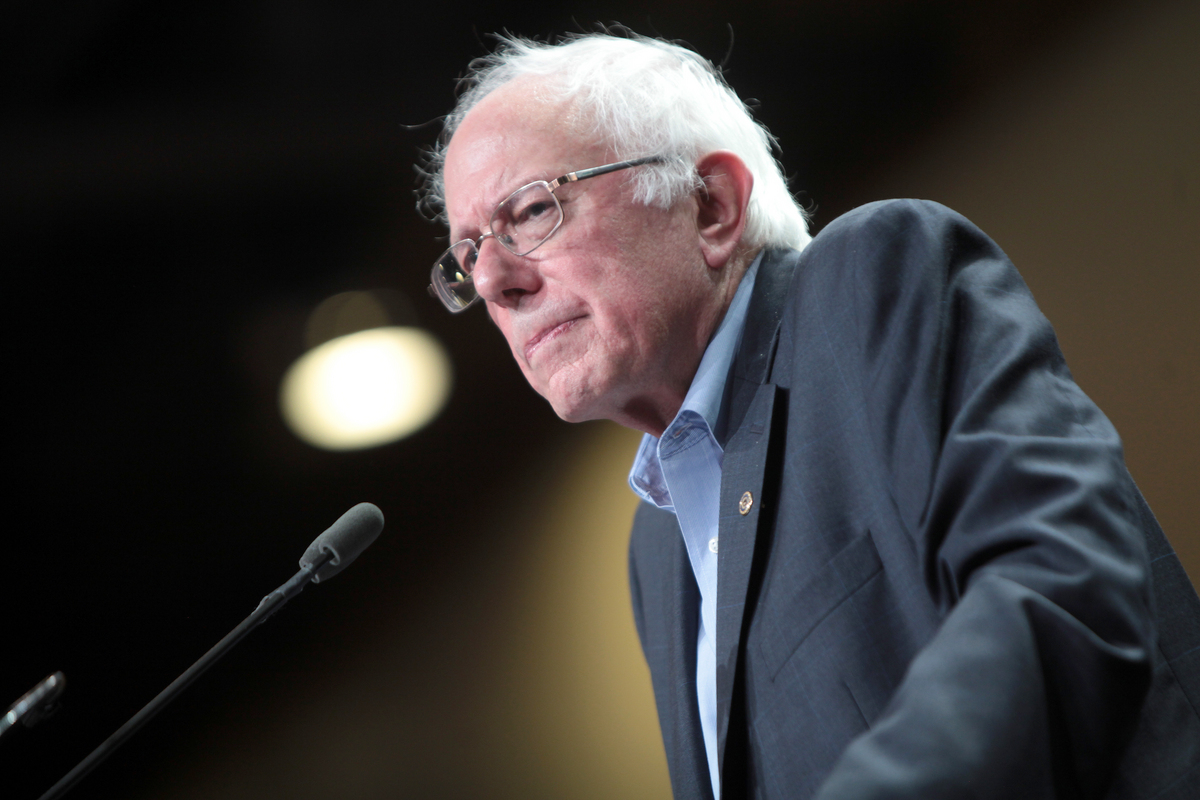On Tuesday, Feb. 9, Vermont Senator Bernie Sanders became the first Jewish-American ever to win a presidential primary.
Sanders defeated former New York Senator and Secretary of State Hillary Clinton by a margin of 22.4 percent, with 60.4 percent of the vote compared to Clinton’s 38.0 percent. In doing so, he swept all ten New Hampshire counties, and all but four townships and municipalities (out of more than 200 total).
Sanders is originally from the Flatbush neighborhood of Brooklyn in New York City, and his father was a paint merchant and Holocaust survivor from Southern Poland. As a youth, Sanders participated in the Civil Rights Movement, and later spent several months on Shaar Ha’amakim, a radical Kibbutz in Northern Israel associated with the radical socialist Hashomer Hatzair movement. While Sanders is avowedly secular, he has a strong self-described cultural attachment to Judaism.
Should Sanders go on to win the Democratic nomination, he would be the second Jew ever placed on a national presidential ticket — former Connecticut senator Joe Lieberman was Al Gore’s running mate in his failed 2000 run for the presidency.
Thus far, Sanders’ coalition has followed a different trajectory than those of previous insurgent candidates, such as Bill Bradley in 2000, Howard Dean in 2004, and Barack Obama in 2008. While Bradley, Dean and Obama all saw their strongest support in higher income brackets, New York Times exit polls suggest that Sanders lost those earning over $200,000 53-46 to Clinton, while winning those earning $30-50,000 60-39, and those under $30,000 72-24. There was a similarly large age gap between the two candidates, with Clinton winning those 65 and over 54-45, and Sanders winning 18-29 year olds 83-16. His performance throughout the state was relatively consistent — he carried the Boston exurbs in Rockingham and Hillsborough counties, considered Clinton’s base, 57 percent of the vote. At the same time, he racked up large margins in university towns and rural Northern New Hampshire alike, with some towns giving him over 70 percent of the vote.
Despite her poor performance in this year’s primary, it was Clinton’s New Hampshire win in 2008 that gave her the momentum to remain viable throughout most of the primary campaign against eventual nominee Obama.
Nevertheless, despite his blowout New Hampshire victory, Sanders is still locked in a competitive race with Clinton. Much will depend on whether the early upheavals in the race, namely a statistical tie in the Iowa caucuses and Sanders’ New Hampshire victory, will propel Sanders’ name recognition and horserace numbers among minorities. This is especially important, as the next two states on the primary schedule, Nevada and South Carolina, have large Latino and African-American populations, respectively. Nevada also has a significant Jewish population, though turnout will likely be lower, as the caucuses take place on a Saturday, during which many Jews observe Shabbat.
Polling remains scarce for both states. Since New Hampshire, there has only been one poll — of questionable quality — which showed a tie with 45 percent for each candidate. Recent South Carolina polling suggests 30-40 percent for Sanders, though he wins a large majority of white voters.
What will a Sanders win mean for the American Jewish community? Probably not that much one way or another. On Israel-related issues he is a dove, and cites the liberal organization J Street as one of his go-to foreign policy lobbies. He has largely acted independently and outside of the organized Jewish community. Nevertheless, should he become president, it would certainly be a triumph for Jews throughout America.

